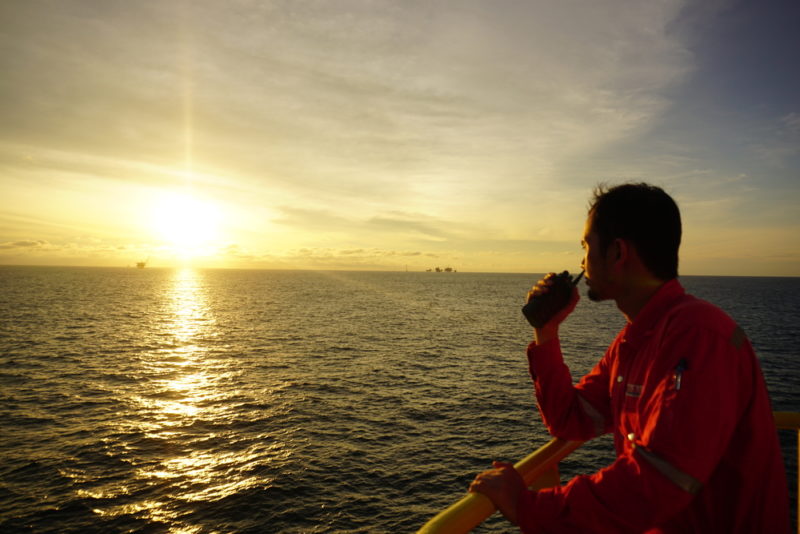Widely regarded as the senior statesman of world maritime journalism, Michael Grey* offers, in our FORUM section, an impassioned commentary on seafarers as the too easily forgotten heroes of COVID-19.
 “Seafarers at the core of shipping’s future” might seem somewhat an obvious observation – a bit like suggesting that the sea is a necessary adjunct to the flotation of ships. It is, in case it has escaped your notice, the International Maritime Organization’s “World Maritime Theme” for 2021, and it is clear, bearing in mind the world’s treatment of this important workforce in 2020, something that needs to be yelled from the rooftops.
“Seafarers at the core of shipping’s future” might seem somewhat an obvious observation – a bit like suggesting that the sea is a necessary adjunct to the flotation of ships. It is, in case it has escaped your notice, the International Maritime Organization’s “World Maritime Theme” for 2021, and it is clear, bearing in mind the world’s treatment of this important workforce in 2020, something that needs to be yelled from the rooftops.
IMO would like its annual campaign to increase the visibility of seafarers, which is harder than it seems, as few among our populations, preoccupied with their Covid concerns, would ever think about them. But it is worth considering that unlike all those millions of folk who have been largely idle since the pandemic struck, or cheerfully WFH (Work From Home), it’s the seafarers who have stopped the world starving, and prevented your lights going out.
Well, you might say that’s their job, like the dustmen and supermarket delivery drivers and postmen and farmers who never ceased their activities even during lockdown. But what nobody seems to appreciate, is that unlike all those other heroes of the pandemic, the seafarers never stopped at the end of their shifts, keeping on working well beyond the end of their long contracts, because there was no relief for them.
In ports around the world, officials whose job was to say “no”, denied these invisible workers their right to shore leave, making it clear that they were to stay aboard their ships, and that there was no possibility of a crew change. There were endless excuses – there were no hotels available in which waiting crew might be quarantined before their ships arrived, or until an aircraft might take them home. It was always someone else’s problem and the easiest thing to tell the master that he had to push on to the next port, where help might be available. Everyone knew that it probably wouldn’t be.
Listening to someone waxing lyrically on the radio today on the human rights of refugees and illegal asylum seekers, I thought that some emphasis on the human rights of seafarers might be nice. It would be interesting to see some sort of legal challenge, on behalf of seafarers, focussing on the denial of rights to which others are accustomed. Rights to a family life, perhaps, or in the case of months on end without setting foot on land might be considered “cruel and unusual punishment”.
There have been ports where seafarers wanting urgent medical or dental treatment have had this denied. There have been other places where positively vituperative campaigns have been stirred up by the local media, suggesting that the ships coming into their ports, bringing the goods they could not do without, and in which their exports will be carried, will be laden with disease.
The industry’s institutions and fair minded employers have done their utmost to raise the plight of these essential workers with governments and there have indeed been successes in repatriating crew who have been at sea for ridiculous lengths of time, often well beyond legal limits. There are some nations which have been prepared to categorise seafarers as the “essential workers” which they are, some ports and governments which have gone that extra mile.
One of the real consequences of this invisibility of the seafaring workforce is the complete inability to even imagine what life is like aboard ship, under this appalling regime. The ships, and their goods, keep coming, but no landsman ever has a clue what goes on the other side of the dock wall. Outside the specialised cruise ship sector with their considerable shipboard populations, the individual ship’s complements are too small to make any waves.
What a miserable life to contemplate, one of apparently endless work, as the voyage goes on, and on, with no prospect of it terminating. No chance of a brief visit to the shops, with the ship in port, no possibility of getting beyond the end of the gangway. Think of a forty day voyage at “economical” speed in your steel box, and only being able to smell the land or glimpse a tree from the top of the superstructure, when your ship finally berths. What is there to recommend in such a life?
And think on those thousands of seafarers who are on leave, but financially unsupported and unable to join the ships they need to earn the money to feed their families. Shipping companies, agencies, all jumping through bureaucratic hoops as they try and negotiate the changing regulatory minefield. There are quite extraordinary journeys criss-crossing the earth, as seafarers make their journeys home, or attempt to get to work. Most, invariably with little logic, will involve weeks in quarantine.
You might suggest that this pandemic is a one-off and desperate times need appropriate measures, but it is the failure to even recognise the needs of this essential workforce that sticks in the craw. Maybe we can expect nothing better, if you look back to the way that merchant seafarers have been treated over the years, in both war and peace. Essential workers they might be, but very easily forgotten. (photo: Shutterstock)
* Holder of a British Foreign Going Master’s certificate, Michael Grey was at sea for 12 years before subsequently moving into a lengthy distinguished career in maritime journalism. He is a former editor of Lloyd’s List and Fairplay. This candid opinion piece is published with the kind permission of the fortnightly Maritime Advocate Online.





